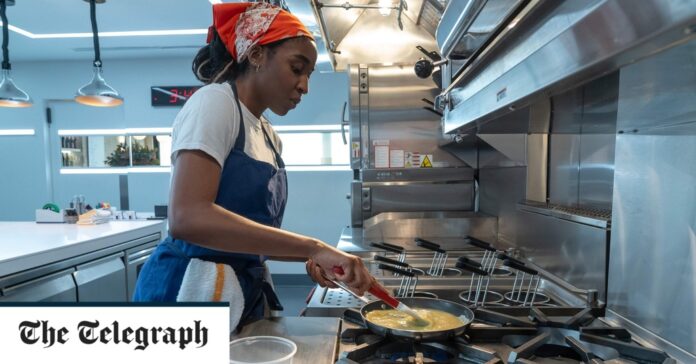Few dishes have more emotional heft, which is why they’ve favoured by everyone from French chefs to poets to The Bear
The Bear, the Disney+ drama about a troubled chef in Chicago, has returned for a second series. If you haven’t seen it, I recommend: it rattles along, makes you hungry and – crucially – the episodes are only half an hour. The climax of the second run is Omelette, in which one of the chefs, Sydney, makes a French omelette with Boursin cheese and chives. It’s a sign that she loves taking care of people.
There is something about omelettes. Few dishes have more emotional heft. At the end of Big Night, Stanley Tucci’s 1996 breakthrough film about a struggling restaurant in New York, his character silently makes a restorative omelette in the wake of culinary disaster. In Ratatouille, Remy, the plucky rat-chef, makes his friend Linguini an omelette for breakfast on his first day at work. In both, the message is the same: making an omelette is an act of care. Whatever personal or professional disaster has taken place, an omelette can save the day.
It’s not only on-screen that omelettes have cultural pedigree. Alexandre Dumas featured several in his Grand dictionnaire de cuisine. The expression ‘you can’t make an omelette without breaking a few eggs’ is thought to date from the French counter-revolutionary François de Charrette, who said it of the deaths of his colleagues.
With An Omelette and a Glass of Wine, Elizabeth David came up with as evocative a title as you could hope for, for her collection of journalism. In Damien Hirst’s print Omelette, the word is emblazoned, incongruously, on a jar of pills. Jessie Ware, the singer, called her foodie memoir, which was shortlisted for the Fortnum & Mason food awards last year, Omelette.


